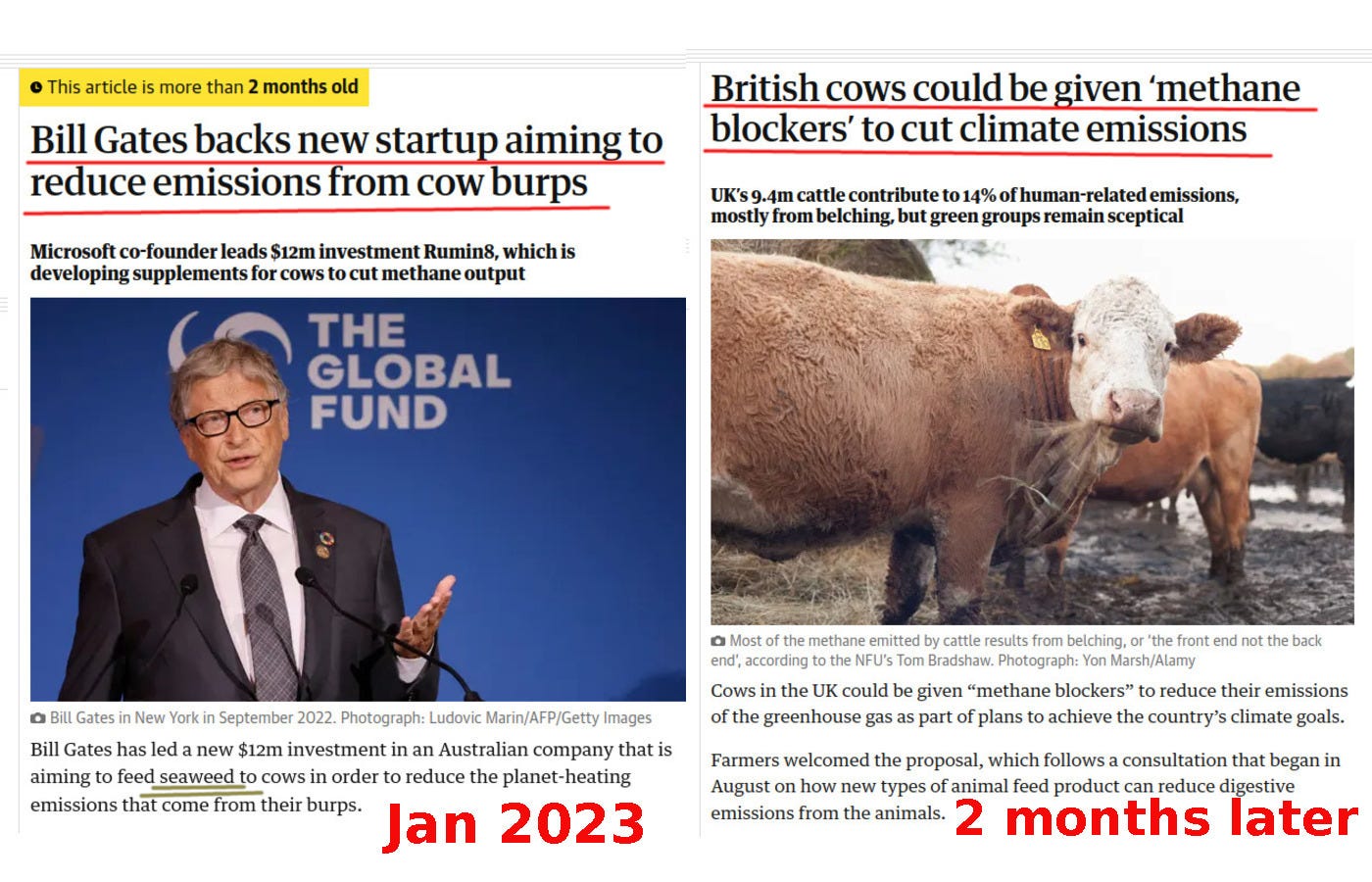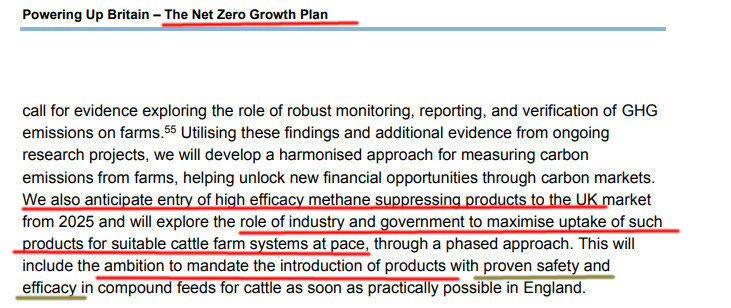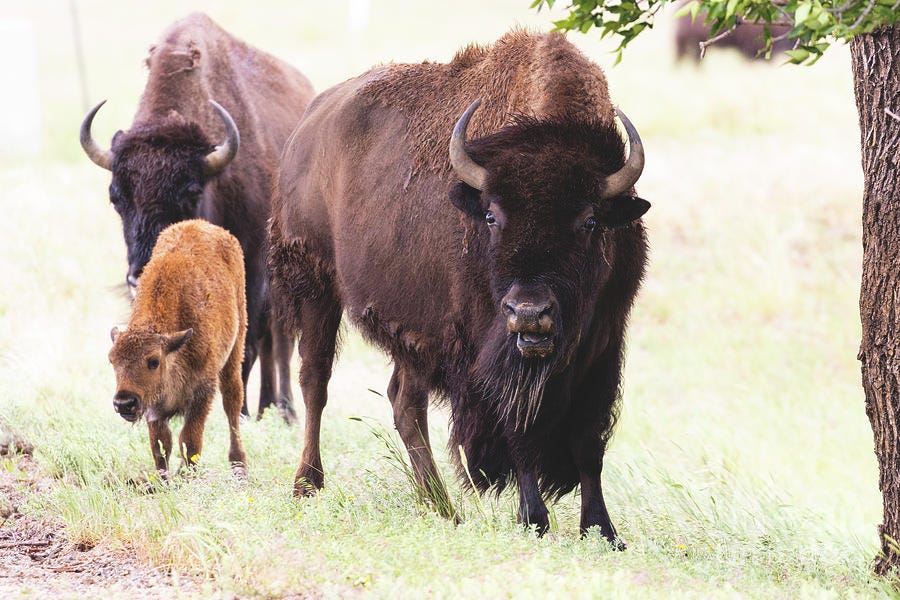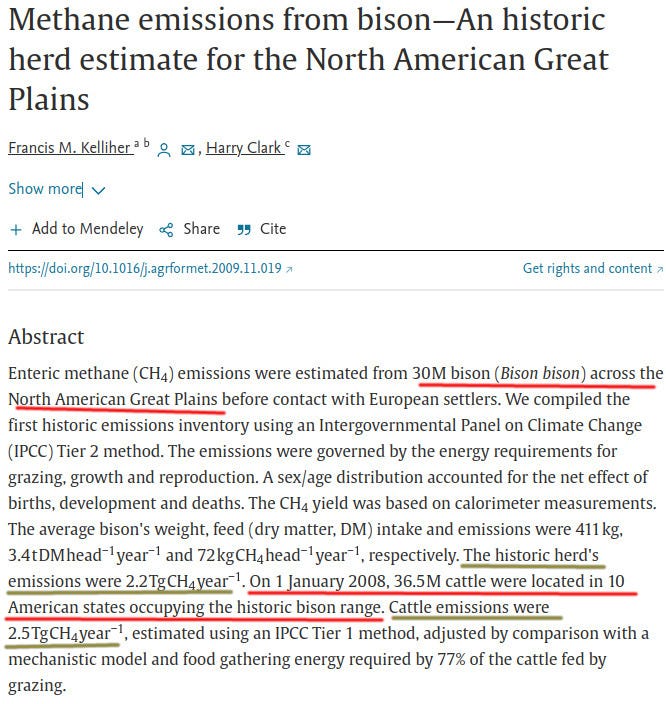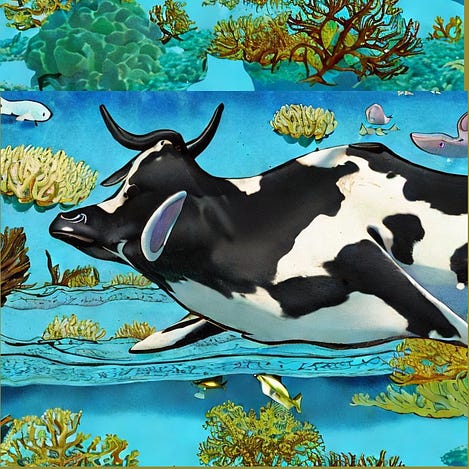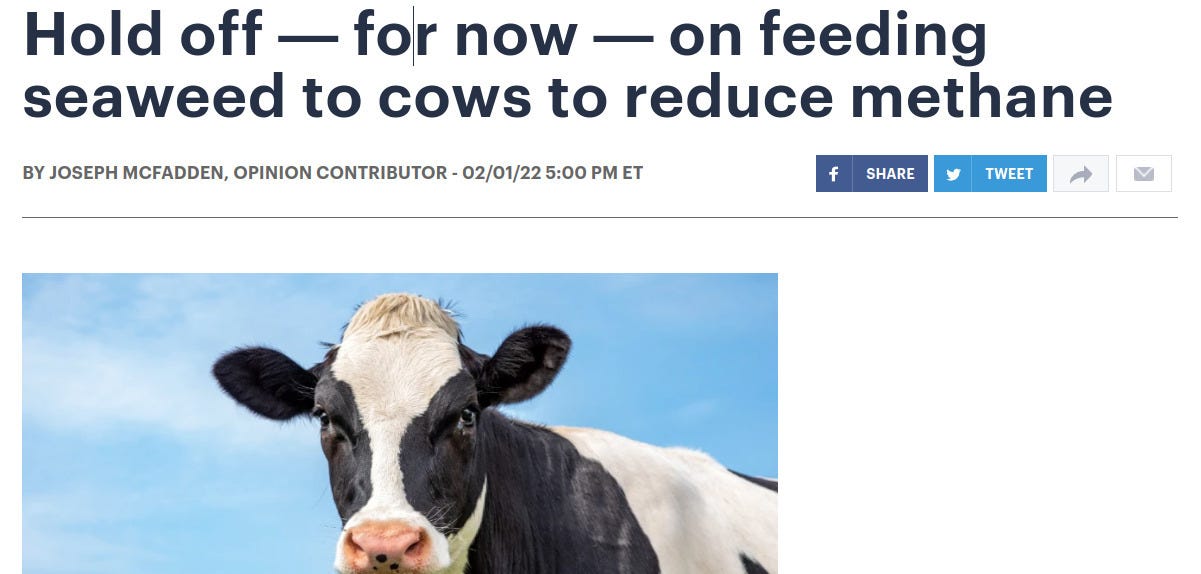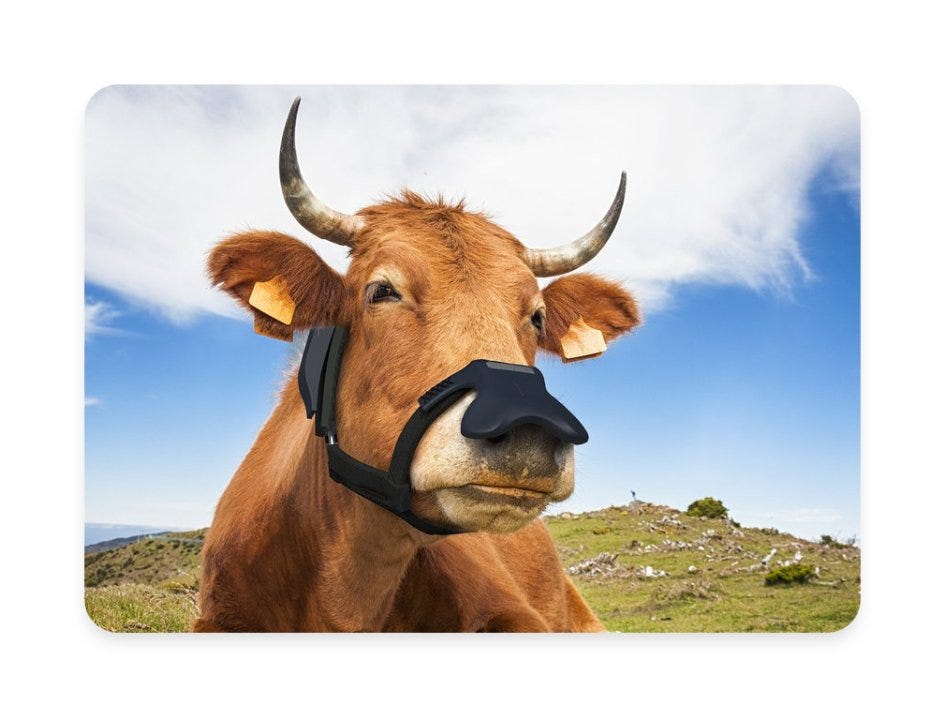Enjoy your "brown milk" and bromine-containing meat
Bill Gates is a fortunate businessman whose investments are unusually well-timed. Bill helps his investees succeed in a peculiar manner not available to regular investors like you and me. For example, he invested in a German startup BioNTech just three months before the start of the Covid pandemic. (BioNTech never produced any approved vaccine before Bill Gates’ investment)
A year later, thanks to Bill’s campaign to “vaccinate the world” against a mystery lab-made Covid virus, BioNTech became the largest COVID vaccine maker, producing billions of doses of the Pfizer vaccine. Bill Gates’ investment multiplied thirty-fold.
Since then, Bill has moved on to climate change. Here, also, his investments proved to be very fortunate. Two months after he invested $12 million into a company making cow-burp-reducing seaweed feed supplements, the UK published a document about mandating supplements to reduce cow methane emissions.
The UK is moving towards mandating seaweed-based supplements:
Just as Pfizer Covid vaccine manufacturer BioNTech, in which Bill invested serendipitously in Sep 2019 and whose product was mandated by many countries, the “methane-reducing feeds” will also be mandated by the UK (and soon by more countries). Lucky Bill!
Wild Bison Emitted More Methane than Modern Cows
Methane (CH4) is the gas you use in your gas stove. In addition to being mined from underground gas fields, methane is also produced by ruminants (such as cows) who graze and use their double stomachs to ferment grass. The fermentation produces methane and, at the same time, converts cellulose into nutrients that cows can digest further. CH4 is considered a potent greenhouse gas that warms our planet, even though an average methane molecule is eliminated from the atmosphere in 12 years.
Are methane-emitting ruminants new to the world? How did our planet fare in the past? It turns out that methane-emitting ruminants have populated our world since ancient times. In North America, the grassy great plains were populated by bison.
Bison are ruminants just like cows and use the same process to digest grass.
In prehistoric times, there were about 60,000,000 bison. Currently, there are about 91,000,000 cattle in the United States. According to the 2008 article below, those bison (which the article estimated at half the Wikipedia number or 30,000,000) produced comparably the same amount of methane as the cows did in 2008.
While the estimates of the historical size of bison herds are imprecise (Wikipedia thinks there were twice as many bison as the article above), and the number of cattle increased since 2008, you can see that prehistoric ruminants emitted about as much methane as the current ones.
But, according to Bill Gates, even though the amount of methane emitted now is the same as was emitted historically before humans engaged in large-scale agriculture, the cows are now killing the planet and must be dealt with.
Is Seaweed Good for Cows (and Us)?
What is the feed supplement that Bill Gates wants to feed cows? It is based on seaweed:
Bill Gates has led a new $12m investment in an Australian company that is aiming to feed seaweed to cows in order to reduce the planet-heating emissions that come from their burps.
Research has previously found that adding seaweed to cow feed can reduce methane formation in their guts by more than 80%. Gates has previously spoken out about the climate impact of meat eating and has advocated that people switch entirely to consuming synthetic beef.
But cows do not swim in the ocean, and they (and their ruminant predecessors) never ate seaweed.
Is seaweed good for cows (and for us consumers of meat and milk)?
This well-sourced article by a professor of dairy biology, Dr. MacFadden, does not agree.
It explains that red seaweed works best to eliminate methane because of its high bromine content:
Red seaweed (e.g., Asparagopsis taxiformis) has been praised for inhibiting methane production from cattle by more than 80 percent because of its high bromoform content.
The article, worth reading, explains many unknowns about how bromine is digested and whether it is passed to humans via meat or milk.
If it is passed on to humans, be aware that bromine is a toxin having long-term effects, as the UK government explains:
Despite knowing these effects, the UK government is going full speed on Bill Gates’ dangerous projects adding bromine-containing seaweed to the cows’ diet without studying the long-term consequences.
Welcome to the Future!
So, Bill Gates invested in three alternatives for cattle:
Adding Bill-Gates-funded seaweed-based supplements to cattle feed to cut down methane burps (this post discusses them)
Adding Bill-Gates-funded methane-emitting cow face masks to capture methane
Replacing meat with vat-grown, immortalized tumor cells, called “lab-grown meat,” into which Bill also invested.
I could ask you which of the alternatives you prefer. The problem is that Bill could not care less about what you prefer. Regardless of how the future evolves - towards cow face masks, patented supplements, or tumor-based meat - Bill will benefit financially.
Will we benefit? That’s less certain.
Enjoy your dinner!
